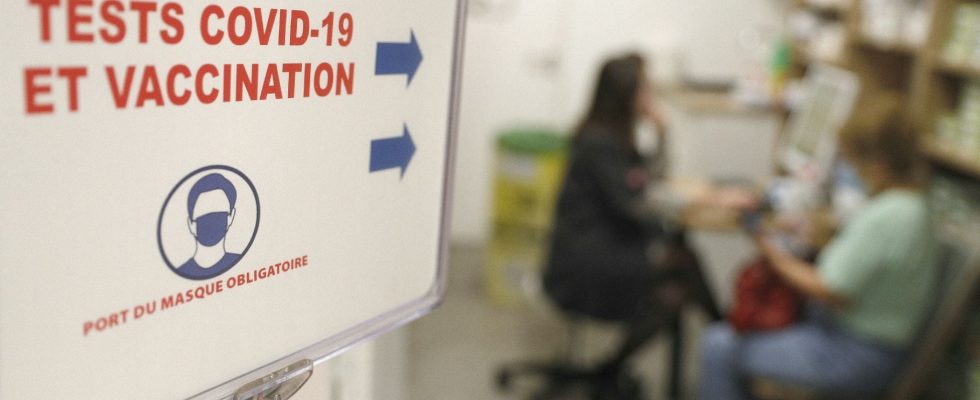Christmas Eve. The antigen test is positive. Impossible to go to your family’s house or to your in-laws’ dinner. Forced to stay alone, in front of his television set, so as not to contaminate others. One week before the end-of-year holidays, this imaginary scenario could become reality for some. In the emergency room alone, last week, more than 4,350 weekly visits for suspected Covid-19 were recorded, and more than 1,820 hospitalizations followed. In total, 34,889 cases were recorded from December 4 to 10, or 6,000 more than the previous week, according to figures from Public Health France. At the beginning of December, 30% of Covid cases recorded in the laboratory were JN.1, this Omicron variant which is the subject of particular vigilance.
Without alarmism, several health professionals are calling for vigilance at the dawn of family reunions. Especially since the resurgence of Covid-19 is combined with that of other acute respiratory infections such as influenza and bronchiolitis, which risks increasing the burden on hospitals, faced last year with a “triple epidemic”. Referring to “those who are going to reunite with their parents, their grandparents at Christmas”, the Minister of Health Aurélien Rousseau judged that “we would all be more reassured if all these little people around the tree were vaccinated”. The objective is twofold: to protect vulnerable loved ones and avoid increasing contacts which would promote the transmission of viruses. “We need a rebound in vaccination. We have crossed 10 million for the flu, we have crossed 5 million for Covid. We are still ahead of last year’s data on Covid, we must “We’re catching up a little on the flu. And it’s a good time to do it,” he said.
The Minister of Health is therefore calling on as many people as possible to get their recall before Christmas. A message intended for people aged 65 and over, those with comorbidities, the immunocompromised, pregnant women regardless of their trimester of pregnancy, as well as residents of accommodation establishments for dependent elderly people (Ehpad) and long-term care units (USLD). Also, those close to these vulnerable groups are encouraged to be bitten. Please note that protection is free, even if you are not among the priority targets.
23.9% of people aged 65 and over vaccinated
These calls for vaccination come after an autumn protection campaign which generated little enthusiasm. According to Public Health France, at the end of November, vaccination coverage of people aged 65 and over did not exceed 23.9%. Initially, it was to be carried out at the same time as that against the flu, from October 17, but the early spread of the Covid-19 virus decided otherwise. This year, the challenge was to establish the double flu/Covid-19 vaccination as a new habit. Both injections can be carried out on the same day and no particular deadline must be respected.
Strengthen pre-existing immunity
Isn’t it already too late to protect yourself before the Christmas holidays? Indeed, the immunity “conferred by vaccines is effective after fifteen days”, Public Health France clarified during a press conference on Wednesday November 13. But be careful, we are talking here about booster injections which will reinforce pre-existing immunity. Consequences: the rise of antibodies will be more rapid. However, don’t wait until Christmas Eve to get bitten: the best thing is to hurry to the pharmacy or consult your doctor.
In addition to vaccination, Santé Publique France emphasizes that it is “essential” that everyone “continues to adopt barrier gestures”. Habits which tend to be lost according to the figures from the CoviPrev survey, taken up by Public health France, carried out from September 11 to 18, 2023 with 2,000 people aged 18 and over. It reveals that 60% of respondents were ready to continue to respect barrier gestures in the event of a return of Covid-19, compared to 25% in the event of a flu epidemic and 22% against other winter illnesses.
Regarding the mask, only 15% of participants say they wear it systematically in the presence of vulnerable people and 14% on public transport. However, Public Health France continues to recommend this facial protection “in the event of symptoms, in busy places and in the presence of fragile people”. It has even become compulsory again in hospitals in Chambéry and Aix-les-Bains. It is therefore strongly recommended to wear a mask in crowded places, starting with public transport, although this is no longer compulsory since 2022. It is also thanks to prevention that we can have good holidays.
